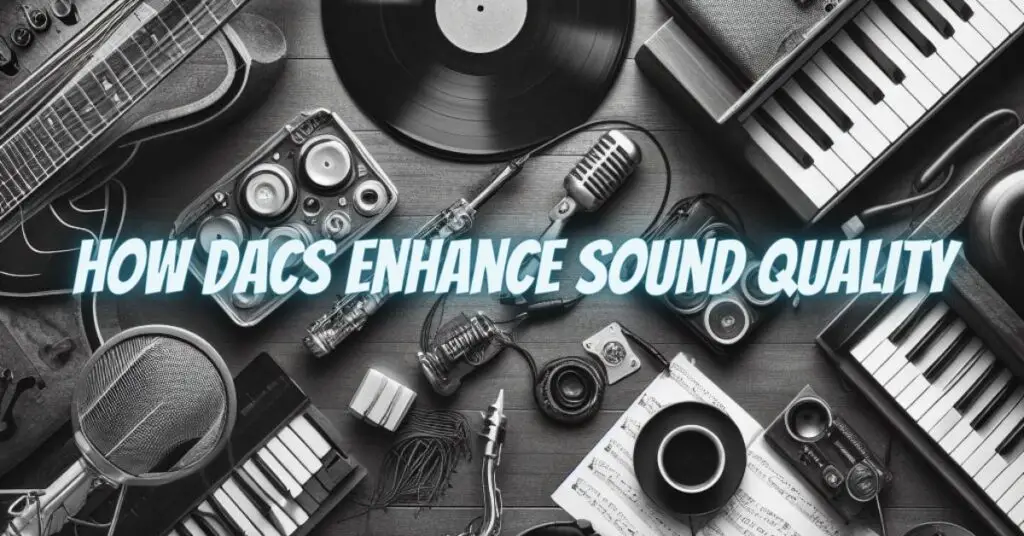The question of whether a Digital-to-Analog Converter (DAC) can improve sound quality has been a subject of debate and curiosity among audio enthusiasts for years. A DAC, in its simplest form, is responsible for converting digital audio signals into analog sound that our ears can perceive. To truly understand the impact of a DAC on sound quality, we need to explore the technology, the scenarios in which it makes a difference, and the factors that determine its effectiveness.
What Is a DAC and How Does It Work?
A Digital-to-Analog Converter, as the name suggests, is a device that takes digital data – often represented as a stream of binary 0s and 1s – and transforms it into analog audio signals, which are then sent to your headphones or speakers. The process is essential for playback as most of our music today is stored in digital formats, such as MP3, FLAC, or streaming services.
The Role of DACs in Audio Playback
The primary function of a DAC in the audio chain is to translate the digital audio files into analog waveforms that our ears can detect. This conversion is vital because most audio equipment, like headphones and speakers, operate with analog signals. In the absence of a DAC, your digital music collection would remain silent.
Built-In vs. External DACs
Modern devices like smartphones, laptops, and dedicated music players come equipped with built-in DACs. These built-in DACs have improved over the years, but the quality can vary significantly between devices. On the other hand, external DACs, which are separate devices you can purchase, often provide a more consistent and higher level of audio quality. They are popular among audiophiles and those who are passionate about their sound experience.
Factors That Determine the Impact of a DAC on Sound Quality
The impact of a DAC on sound quality can vary based on several factors:
1. Source Material:
The quality of the source material plays a crucial role in determining how much a DAC can enhance sound quality. High-resolution audio files (e.g., FLAC or lossless formats) will benefit more from a high-end DAC compared to low-quality MP3s.
2. Audio Equipment:
The quality of your headphones, speakers, and amplifiers can significantly affect how much you’ll notice the benefits of an external DAC. High-end equipment is more likely to reveal the improvements brought by a superior DAC.
3. Budget:
DACs come in a wide range of prices, from budget-friendly options to high-end, audiophile-grade models. While cost can be an indicator of quality, it’s essential to find a DAC that suits your budget and meets your specific needs.
4. Listening Environment:
The listening environment also matters. If you listen in a noisy environment or through low-quality headphones, the impact of a DAC might be less pronounced.
5. Individual Preferences:
Ultimately, the appreciation of sound quality is subjective. Some individuals may be more discerning in their listening and value the subtle improvements a DAC can provide, while others may not notice or prioritize these differences.
Notable Benefits of DACs
For those who appreciate high-quality audio, an external DAC offers several advantages:
1. Improved Sound Quality:
A high-quality DAC can deliver cleaner, more detailed, and immersive audio, making your listening experience more enjoyable.
2. Reduced Interference:
DACs often incorporate better shielding and components, which can help reduce electromagnetic interference and external noise, resulting in cleaner audio.
3. Versatility:
Many external DACs offer compatibility with various devices, ensuring a consistent and high-quality audio experience across multiple platforms.
4. Potential for Future-Proofing:
A good DAC can outlast changes in technology. Investing in a high-quality DAC can future-proof your audio setup, as they typically retain their value.
The Skeptics’ Perspective
Skeptics argue that the differences in sound quality introduced by a DAC are often subtle and may not be noticeable to the average listener. Built-in DACs have improved over the years, and for casual listening or less discerning users, they may suffice.
The question of whether a DAC improves sound quality is not easily answered with a simple “yes” or “no.” The impact of a DAC depends on individual preferences, the quality of your audio equipment, and the source material. If you’re passionate about audio quality, have high-end gear, and listen to high-resolution audio files, an external DAC can undoubtedly enhance your listening experience and may be worth the investment.
For the average listener using standard headphones or speakers, the difference introduced by an external DAC may be subtle and may not justify the cost. Ultimately, the decision to invest in a DAC should be based on your unique audio preferences, listening habits, and budget. The worth of a DAC varies from person to person, but it’s a tool that has the potential to elevate your audio experience if chosen wisely.


